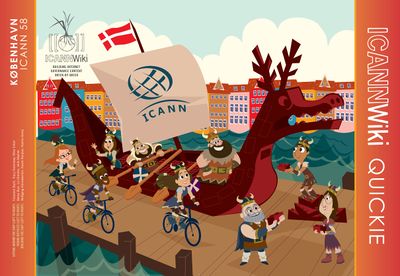ICANN 58 Quick Guide
As usual, we’ve primed this edition of the ICANNWiki Quickie to be a helpful aid to newcomers--which means an introduction on how to get involved in ICANN, a whole new slew of expanded and explained acronyms, a feature on gender equity in tech organizations as well as an exhibition of the numerous capacity building projects making the Internet a better place. We also built this Quickie to honor members of our community who weren’t able to make it to this meeting--which means crafting another creative mural. From cover to cover, we’ve lovingly crafted a comprehensive primer for newcomers. We hope you enjoy, and most importantly, learn something new and useful.
ICANN 58 - Quickie -- DOWNLOAD .PDF
The Gender Digital Divide (March 2017)
VIEW ALL INFOGRAPHICS
Get Involved
Three times a year, ICANN’s Multistakeholder Community gathers for meetings in different regions of the world. These meetings are free and open to all, including remote participants. With around thousands of participants, hundreds of sessions and various stakeholder groups, navigating ICANN as a newcomer can be difficult, but the ICANNWiki Primers are a helpful place to start your ICANN journey.
LEARN: Learn how ICANN is structured and operates by taking a course on ICANN Learn, researching with ICANNWiki’s multilingual encyclopedic resource, and exploring the vast amount of documents and information on icann.org.
FOLLOW: Follow the latest policy discussions by subscribing to some mailing lists or reading the archives. Many of the lists are publicly available, but some may be restricted to members of the Working Group.
BE HEARD: Comment on policy proposals through ICANN’s public comment platform. Each proposal is open for a minimum of 40 days for community comments. At ICANN Meetings, you can also make comments at the Public Forums.
Get Involved With One of ICANN's Structures
ICANN’s Multistakeholder Community consists of seven structures, classified as Supporting Organizations (SO) and Advisory Committees (AC). Each of the seven structures have different compositions and criteria to join. Newcomers looking for a way to contribute to ICANN’s multi-stakeholder, bottom-up, consensus driven model for policy development should start with the GNSO or ALAC.
Supporting Organizations
GNSO: The Generic Names Supporting Organization (GNSO) is the main policy-making body in ICANN. It brings together various stakeholder groups to develop and recommend policies to the ICANN Board concerning generic top-level domains (gTLDs). To learn more, visit gnso.icann.org
ccNSO: The Country Code Names Supporting Organization (ccNSO) is open to and comprised of the managers responsible for operating country-code top-level domains (ccTLDs). It develop and recommends policies relating to ccTLDs. To learn more visit ccnso.icann.org.
ASO: The Address Supporting Organization (ASO) represents the Regional Internet Registries (RIRs). It is tasked with reviewing and developing Internet Protocol address policy and advise the Board accordingly. ASO Membership is only available to RIRs. Learn more at aso.icann.org.
Advisory Committees
ALAC: The At Large Advisory Committee (ALAC) functions as the voice for the individual Internet user as it relates to ICANN processes, policy and more and advises the Board accordingly. It is formed of smaller groups At-Large Structures that are part of Regional At-Large Organizations To learn more, visit atlarge.icann.org.
SSAC: The Security and Stability Advisory Committee is composed of technical experts from industry and academia and advises the Board on the security and integrity of the Internet’s naming and address allocation systems. The SSAC is an invite-only organization, but you can learn more about their work at ssac.icann.org.
GAC: The Governmental Advisory Committee (GAC) iscomprised of formally appointed governmental representatives and is responsible for providing advice to the Board relating to the concerns of governments, including how ICANN policies interact with laws and international agreements. To learn more, visit gac.icann.org.
RSSAC: The Root Server System Advisory Committee is made up of representatives from the organization responsible for operating the 13 root name servers and advises the Board on issues related to the operation, administration, security, and integrity of the Internet’s Root Server. To learn more, visit rssac.icann.org.



